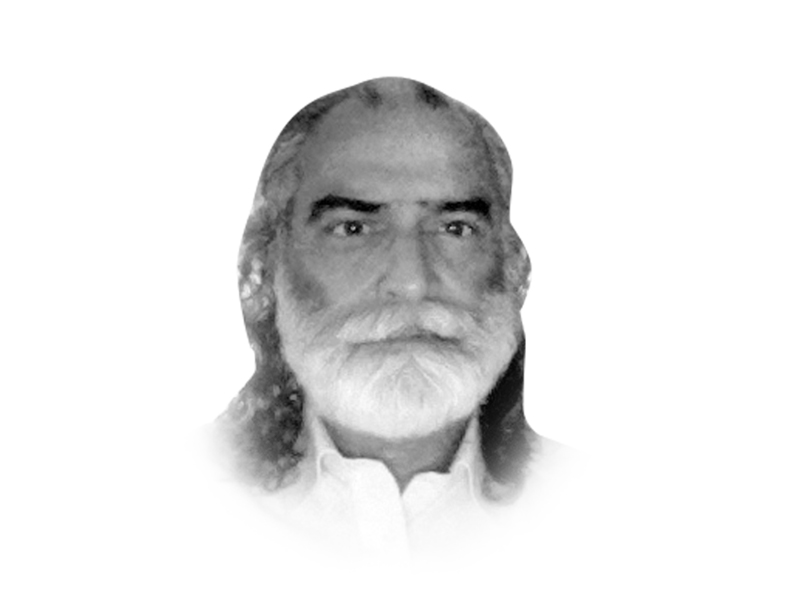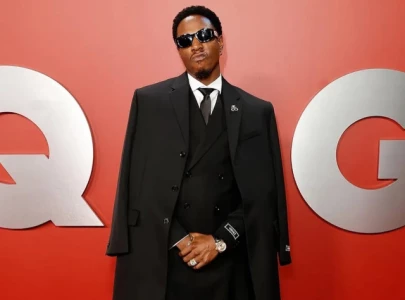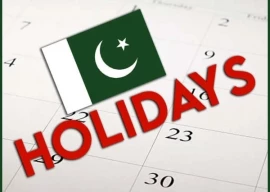
One may argue that the rising number of cases is, in fact, a result of the enhanced role of watchdog bodies. Hence, more cases are coming to the surface. This may be marginally true but there is substantial evidence that despite the mushrooming of media channels and watchdog bodies, corrupt elements have managed to capture substantive seats through elections in the last 25 years in both countries, while in the first 40 years of independence, politicians were comparatively honest. During the early period, unlike India, we did not hold general elections regularly; however, fewer of our politicians were corrupt.
I leave it to the readers to think about why most of the first generation of politicians of both countries was honest. One thing that may be worth noting here, however, is that elections did not appear as a factor as far as the cleansing of our assemblies from the corrupt is concerned. In fact, I would argue that in both countries, elections paved the way for the corrupt to capture electoral space. Let’s quickly scan through political history. Though under the British Raj a massive amount of resources were extracted from India, generally there was strict adherence to the rule of law. The leadership of both the Muslim League and Congress were honest. They would hold annual conferences regularly. The leaders would debate party policies and strategies; and the delegates would approve or disapprove them through voting. Fighting for independence demanded sacrifices. Hence, greedy opportunists and the corrupt did not have reason to join the struggle. Moreover, most leaders of the Congress and the Muslim League were professional people; i.e., successful lawyers, intellectuals, writers, trade unionists, etc. They did not have any personal financial interest that they would need to promote through politics. After independence, gradually, thugs, feudals, businessmen and the real estate mafia replaced them. This created a serious conflict of interest. Unlike Jinnah, Gandhi and Nehru, the second generation of politicians chose to use political power to promote private interests. They did not want anyone who could challenge them inside and outside of political parties. Thus, they destroyed inner party debate, democracy and weakened social movements and trade unions. The media, too, became an industry. The teeth of the watchdogs were removed and advocacy/lobbying replaced social action. Moreover, research on social and political issues was marginalised and delinked from state and society. Consequently, debate and dialogue in our country has become mostly emotional, uninformed and extremely opinionated.
In order to substantiate my argument that elections make politicians corrupt, I would like to cite findings of a fascinating study conducted by two scholars, Asim Khwaja and Atif Mian (2004). In order to understand the relationship between politics and rent-seeking behaviour, they investigated the loan data of thousands of Pakistani firms. The study identifies a firm as “political” if any of its directors had participated in an election. Through a rigorous model, they found out that banks would favour political firms. One of their findings was “that not only do they receive 40 per cent larger loans but they also have 50 per cent higher default rates on the loans”. Moreover, they established that the percentage of votes polled and the margin of victory played a crucial role in this regard. This means that the stronger the politician, the higher the loan amount and default rate. The study shows a strong correlation between elections and corruption.
On February 24, the State Bank of Pakistan informed the Supreme Court that Rs256 billion were waived between 1971 and 2009. The report by Justice (retd) Ali’s commission says that loans worth Rs2.38 billon were waived between 1971 and 1991, whereas loans worth Rs84.62 billion were waived between 1992 and 2009. The list also reveals that the majority of these loans were given to ‘political’ firms. Hence, it is abundantly clear that despite repeated elections in both Pakistan and India, corruption increased and governance became poorer over the years. Moreover, corruption also widens inequalities and deepens deprivations. It is not, therefore, the elections per se, which improve governance and eliminate the corrupt. It is, in fact, the power of freedom that makes the difference. Though freedom is enshrined in our law, poor voters feel vulnerable. Should they use their freedom to vote freely, they loose their freedom after the election. The real issue is to have a free and fair election with the liberty to choose a candidate of one’s liking, without being coerced or bought.
Published in The Express Tribune, March 26th, 2013.
COMMENTS (18)
Comments are moderated and generally will be posted if they are on-topic and not abusive.
For more information, please see our Comments FAQ













1734946202-0/Express-Tribune-(6)1734946202-0-270x192.webp)
1732012115-0/Untitled-design-(14)1732012115-0-270x192.webp)
1734899716-0/image-(15)1734899716-0-270x192.webp)



Ha, ha, ha. The author seems to say democracy has increased corruption,. There is autocratic central rule in China. Look at what they have done to Tibet! Only the state dictates what u can do or cannot do. Problem with India was that democracy has meant rule by Congress most of India's 65 years. Congress is corrupt. Does not mean everyone else is corrupt. But India is transitioning towards a democracy that will ultimately benefit the poorest of the poor. It is democracy that ensured a Dalit as CM of UP. It is democracy that has empowered to lower strata of society by "reservation" to come up in life. It is also free media in a democracy that is unravelling all the misdoings of the govt in the form of scams. Without a free press, these weill never come to light. China is one of the most corrupt nations in the world. Corruption is far less in scandinavian countries. Go and figure out why. Democracy is a churning process and neeeds time. For a nation like India, with so many cultures and subcultures, there is no other way.
True the electoral process is deeply flawed in India. But the answer is in electoral reforms like selection of candidates at the constituency level by people and not high commands of parties, right to recall, regular control exercised by the electorate over representatives etc. Bringing these reforms will bring in more direct democracy and empowerment of electorate rather than just voting rights once in 5 years. No doubt it is an uphill task but a necessary task to extend democracy and empower people. Right now political parties are only interested in coming to power and serving the status quo and going to any criminal extent to retain power. Difficult but there is no alternative to democracy... SK Mumbai
It is nobody's case that we should get rid of democracy. All systems of government have their faults. Dictatorsips, monarchies, aristocracies, democracy, one party rule all have drawbacks. The issues in under developed countries, and sometimes even in developed countries too are not understood by the electorate and people vote for personalities, caste, religion, greed and selfishness. Winston Chrchill famously remarked that' Democracy is the worst form of government except there is no better - it is a legalised mafia'. The last point has amply been demonstrated in many countries (Italy and Japan included). The author's point that elections encourage corruption cannot be dismissed easily. It is one of the many reasons why Britain is not in favour of replacing its monarchy by a Presidential system.
How crruption and money waiving will end ???
The first question one should ask is that does democrcay exist anywhere in the world? The factual answer is No. So what is being sold as democracy? It is "Opium of the masses". Allow me to give the best example of the "Opium of the masses". The President of the USA commits an act of treason in broad day light and yet he still remains President. The President of the USA committed an act of treason on June 8 1967 when the world's biggest and very well known terrorists declared war on the USA by attacking and almost sinking the US ship called USS Liberty. In reaction the US forces based in Italy were alerted and USAF warplanes were dispatched to rescue USS Liberty. The pilots of the warplanes could not believe their ears when they heard that the President of the US has ordered them to return almost midway in their flight. The President did so, so that the terrorists could sink the ship and the blame could be levelled on Egypt. In other words it was a false flag sort of operation exactly the way twin towers were destroyed through inside job. So what sort of democracy is there in the USA that the President takes orders from the terrorists? Democracy is by the people, of the people, by the people. In all those dramas we are being told is democracy the very essential players of democracy i.e. the people are missing. So howcan there be democracy without th its essential functionaries?
This is classic case of ignorance or you might say hidden agenda. before asking the author what is the alternative to democracy. It is worth while to know what does author think of democracy itself. for explaining in lay man terms to author, democracy is for the people to choose who should formulate, guide and govern the resources of the state for better ment of all in the state. If you choose wrong, is it the fault of the system which gives u that oppourtunity. To choose the right you should have the ability to know, do you have that. Democracy gives an oppourtunity for you to become corrupt too, can you become. Do you want to be corrupt if no, why? Some said above democracy fails in low literacy states, just Imagine has religion succeeded in the same atmosphere? democracy in lay man terms is simply a belief and practice that everybody should be treated equal and according to certain agreed laws. If you fail to abide by law does that mean the law failed or ur failed to abide by it.
Wonderful article
Brilliant , democracy fails in low literacy states so is flawed !
An excelent piece. And it's clear that most of the above commentators have totally missed the point of the article. The author is not talking about scrapping democracy but simply pointing out that elections alone do not automatically lead to better leadership as is often asserted.
I would just add two points:
We we need elected local govts where people can exercise real power at the grass roots level instead of the very top down system we have right now. In fact the very reason why most of our major political parties resent local govts is that they fear how that might dilute the hold of the current ruling elite.
The removal of corrupt people must not be left to elections alone; institutions like NAB, the election commission and the judiciary along with a vibrant media have to play their part in disqualifying known crooks and criminals. The civil society needs to assert pressure in support of such efforts instead of being taken in by the cries of vested interests shouting that the push for accountability is an attack on democracy.
If people are corrupt, does not make Democracy bad. You can only elect people from those that are contesting, not as per our whims and fancies. If people are corrupt those elected will also be corrupt, nothing can be done about it. What exactly is the message this article is trying to convey ?
Mr Bari is absolutely correct in his assertion that elections encourage corruption. In fact, many elected people claim that after being elected public have reposed faith in their honesty and integrity. So, for them it is a lean slate. The problem is with democracy itself. It is the best system of governance but it is flawed in very way. Democracy gives a government of the rich or government of the corrupts specially in nations where there is massive inequality in the social, educational and financial status of electorate. At best, democracy is a primitive way of deciding who governs because of sheer numbers. Status quo suits the ruling class. So, why would they want to change the corrupt system? Also, where there are elections, there is no chance of a revolution. The author compares India and Pakistan. He is quite right a out the similarities of the attitudes of both elected and the electorates. In India however, politicians are not looting the banks. The NGOs, courts and media are more active than Pakistan and though corruption is rampant but the situation is still not as bad. There is also the genuine fear in the minds of the rulers that they will be thrown out next time and they usually are.
Flawed and misleading logic.
Long term Democracy has been the only proven model in the world that has worked the most for betterment of underprivileged.
It may be good idea to promote it, in a country that has played hide and seek with it in the last 65 years.
"the power of freedom that makes the difference" Amen!
Elections without freedom? The question should be 'Freedom without elections'? Moreover, the author is writing about 'corruption' and not 'freedom'. And in one line, I would say that the leaders will be only as much honest as the population that brings them to power. I leave the rest for the readers to ponder - are we as a culture, honest people?
This is the classical problem with most of us Pakistanis when we talk about democracy. We focus on the short term effects and results of democracy. Yes, no one can deny how terrible this government was. No one can deny these people have looted the country to no end. No one can deny these people had no skills or ability to run a country, even if they wanted to. BUT notice, because we have been through this painful transition, we have learned that certain people should not be voted to office. Democracy as a form of government takes decades to develop. Once it has developed, it works wonders. democracy is the only long-term solution, the only away people can choose their destiny. The tug and pull in democracy will enable a system of institutions over time such that these people will not be able to loot as easily. We have to keep going, dont look behind but look ahead! We as a country need democracy and over time we will have hopefully able and honest people in government. One person is not the solution to any problem, we need a system to developed and allow it to foster legions of benevolent rulers.
Election doesn't in itself can counter cooruption.A vigrously independent media is actually key to good governance.In UK media can make or break career of politicians.A servile media allowed Bush to get away with a lie.As a result US is $3 trillion porer and 4000 men/women dead. We need all kind of media fiercly independent .Unlike Pakistan,Indian media is maid of the crony capitalist and corrupt politicians.Therefore Pakistan has better future if Parliament runs for its term and it has President like Zardari.In last five years of Parliamentary proceedings in Pakistan there was never a scene like one sees regularly in Indian Parliament.Indian Parliament is no match to Pkistan Nartional assembly.Have Heart!
Completely disagreed with the author .Democracy is the only way for the people (common man ) to have a say in the system . It is the only system where people can have their will to elect representatives ,exercise freedom , and have check and balance.Democracy paves the way for the people to evolve i.e. to make better decision than past for the betterment of their future. And if the system is not discarding or eliminating corruption & incompetencies it is the people who are to blame for not learning their mistakes or not making educated decisions instead of system itself.Writer conviniently belittled the role of media and watchdogs who exposed these corruption and scandals. There will be no free media and watchdog if there is no democracy that measn no exopsing of anything!. The the fruit of democracy is you let the people to have a freedom and make them to learn and evolve with the passage of time and as the people evolve the system gets better and better.